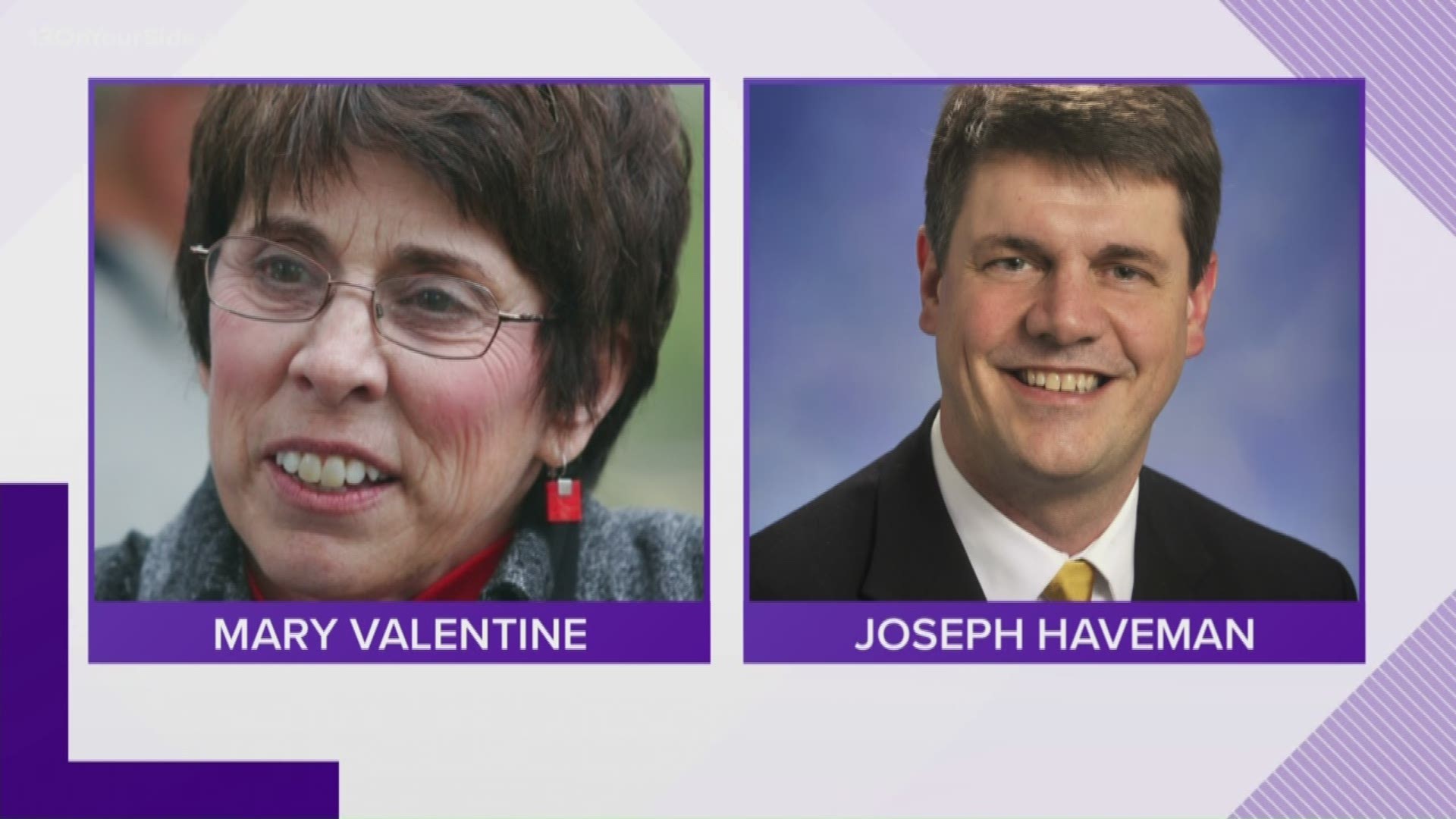GRAND RAPIDS, Mich. — (AP) - Eight former Michigan lawmakers filed a lawsuit Wednesday alleging they have been unconstitutionally blocked from running again by “draconian” term-limit restrictions that also prevent voters from backing candidates of their choice.
The suit, filed in Grand Rapids federal court, seeks a permanent injunction against a portion of a 1992 voter-passed constitutional amendment that lets legislators serve no more than 14 years, including three two-year House terms and two four-year Senate terms.
Michigan’s rules are viewed as among the most restrictive among the 15 states with consecutive or lifetime legislative term limits.
The complaint only pertains to the legislative branch — not limits for the governor, lieutenant governor, attorney general and secretary of state. The plaintiffs include three Republicans — Joseph Haveman, Roger Kahn, Paul Opsommer — and five Democrats — Scott Dianda, Clark Harder, David Nathan, Douglas Spade and Mary Valentine.
The law, according to the suit, “has proven a failed social experiment: it has decreased the experience and competency of the legislature, decreased bipartisanship and coalition building, increased dynastic and recruitment-based representation, and increased the influence of lobbyists and special interest groups.” The complaint calls the limits “draconian” and says the lawmakers brought suit to “vindicate their own rights to appear on the ballot, as well as their right to themselves vote for experienced candidates.”
This is not first time the limits have been challenged in court on constitutional grounds. In 1998, a federal judge in Detroit and the 6th U.S. Circuit Court of Appeals rejected a challenge filed by four voters and two public-interest groups.
John Bursh, a former Michigan solicitor general who is one of the lawyers behind the new case, said the suit is different because would-be candidates are involved.
“That’s a theory that’s never been tried in federal courts. However, we have some precedent out there which would suggest that this is a viable way to go,” he said.
Bursch said term limits themselves probably are constitutional, but Michigan’s — which are some of the shortest and last for life — are not.
“There’s probably a healthy mix somewhere in the middle that would be perfectly constitutional,” he said.
The suit is being paid for by Michiganders for Good Government, a 501(c)(4) "social welfare" nonprofit that is not required to disclose its donors. It was formed in 2018 by Rusty Merchant, a Lansing lobbyist who worked as a GOP legislative aide in the 1990s.
Bursch said the financing is bipartisan, from “both the left and the right.”
The suit was criticized by Patrick Anderson, an economist who authored the 1992 term limits ballot initiative and noted that previous suits failed in Michigan and other states.
“I think it’s disgraceful that legislators that took an oath to uphold the Michigan Constitution are now asking a federal judge to set it aside,” he said. “Michigan’s constitution allows voters who want to amend it a clear opportunity to do so. ... I think it’s going to be a very, very high hill to climb to convince judges to overrule voters.”
The suit was brought about a month after Republican legislative leaders privately briefed their caucuses about talks with the Voters Not Politicians ballot committee and the Michigan Chamber of Commerce to ease legislative term limits through a constitutional amendment, which would need voter approval.
Valentine, 72, who held a Muskegon-area House seat from 1997 through 2000 before unsuccessfully running for the Senate, said she joined the legal challenge because term limits “are harming our state and our government and we need to change that.”
Kahn, 74, represented the Saginaw area in the Legislature from 1997 through 2014 and cannot run again. He said never in his 40 years as a cardiologist did a patient come in and ask to see the least experienced physician.
“I feel that my ability to run — and one of my ideals in life was to be able to do this sort of thing — has been lost and abridged and I’m treated no better than if I was a felon,” Kahn said.
Fifteen states have legislative term limits. Michigan is among six with lifetime restrictions. Of those, California and Oklahoma’s are shorter — 12 years — but allow lawmakers to serve all of it in one chamber. Arkansas, Missouri and Nevada have limits ranging between 16 and 24 years.
MORE on 13 ON YOUR SIDE:
RELATED VIDEO:
►Make it easy to keep up to date with more stories like this. Download the 13 ON YOUR SIDE app now.
Have a news tip? Email news@13onyourside.com, visit our Facebook page or Twitter. Subscribe to our YouTube channel.


